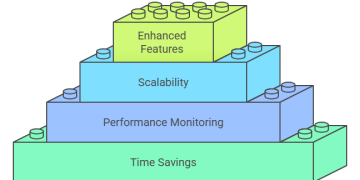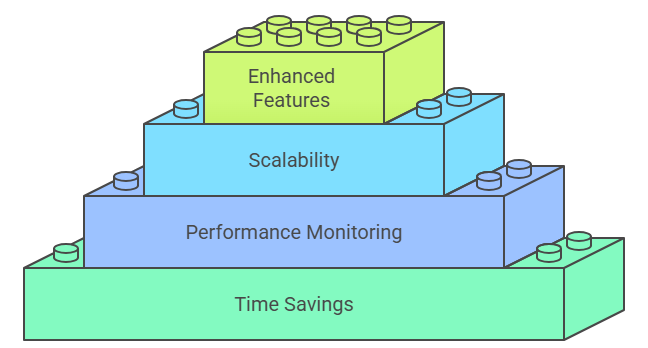Enterprise Resource Planning (ERP) systems have long been the backbone of modern business operations, managing everything from finance and human resources to supply chain and customer relationships. However, as businesses face increasing complexity and demand for real-time insights, traditional ERP systems are evolving rapidly. The integration of artificial intelligence represents the next logical leap in ERP transformation, promising to revolutionize how organizations manage their core business processes and make data-driven decisions.
Why Traditional ERP Systems Fall Short in 2025
Legacy ERP systems were designed for a different era of business operations, one where batch processing and periodic reporting were sufficient for decision-making. Today’s fast-paced business environment demands real-time insights, predictive capabilities, and automated responses to changing market conditions. Traditional ERP platforms struggle to handle unstructured data, require extensive manual intervention, and often operate in silos that prevent comprehensive business intelligence.
The limitations become even more apparent when considering user experience and system adaptability. Conventional ERP systems typically require extensive training, follow rigid workflows, and lack the intuitive interfaces that modern employees expect. This results in lower adoption rates, reduced productivity, and missed opportunities for operational optimization that could drive competitive advantage.
Read Our Blog: Why We Focus on Questions Before Code
The Role of AI in Enhancing ERP Capabilities
Artificial intelligence transforms ERP systems from reactive data repositories into proactive business intelligence platforms. AI ERP systems leverage machine learning algorithms to analyze patterns, predict outcomes, and automate routine tasks that previously required human intervention. This transformation enables organizations to move from historical reporting to predictive analytics, fundamentally changing how they approach strategic planning and operational management.
The integration of AI technologies like natural language processing, computer vision, and deep learning creates ERP platforms that can understand context, learn from user behavior, and continuously improve their performance. These AI-based ERP software solutions can process vast amounts of structured and unstructured data simultaneously, providing comprehensive insights that traditional systems simply cannot match.
Key Benefits of AI-Driven ERP Systems
Enhanced Predictive Analytics and Forecasting
AI integration enables ERP systems to analyze historical data patterns and external market indicators to generate accurate forecasts for demand planning, inventory management, and financial projections. Organizations using AI-powered ERP solutions report up to 25% improvement in forecast accuracy, leading to better resource allocation and reduced operational costs. Machine learning in ERP continuously refines these predictions based on new data, creating increasingly sophisticated models that adapt to changing business conditions.
Intelligent Process Automation
Modern AI ERP systems excel at automating complex business processes that traditionally required manual oversight. Enterprise automation powered by AI can handle invoice processing, purchase order approvals, and compliance reporting with minimal human intervention. This automation not only reduces processing time but also eliminates human errors and ensures consistent adherence to business rules and regulatory requirements.
Real-time Data Processing and Insights
Traditional ERP systems often struggle with real-time data processing, creating delays in critical business decisions. AI-enhanced platforms process information as it enters the system, providing immediate insights and alerts when anomalies or opportunities arise. This real-time data capability enables organizations to respond quickly to market changes, supply chain disruptions, or customer demands, maintaining competitive advantage in dynamic markets.
Read Our Blog: How Custom Software Can Improve Efficiency in the Automotive Industry
Real-Life Examples of AI in ERP Implementation
Microsoft Dynamics 365 with Copilot Integration
Microsoft has integrated its Copilot AI assistant into Dynamics 365, automating tasks, providing data analysis, and improving user experiences in ERP systems. The platform uses generative AI to help users navigate complex workflows, generate reports through natural language queries, and automate routine administrative tasks. Companies implementing Microsoft’s AI-assisted ERP software report significant improvements in user productivity and system adoption rates.
SAP Business AI and Joule Assistant
SAP introduced its “Joule” generative AI assistant in 2023, with companies like Chobani using SAP Business AI to reduce time spent on expenses by 75%. The platform’s AI capabilities extend beyond simple automation to include predictive maintenance, intelligent procurement recommendations, and automated compliance monitoring. Accenture increased automatic cash processing by 80% using SAP’s ready-to-use AI solutions.
Oracle Cloud ERP AI Features
Oracle has embedded AI capabilities throughout its cloud ERP platforms, focusing on intelligent automation and predictive analytics. The system uses machine learning algorithms to optimize inventory levels, predict equipment maintenance needs, and identify potential financial discrepancies before they impact operations. These AI integration features help organizations reduce costs while improving operational efficiency across multiple business functions.
Read Our Blog: How UX Design Shapes Mobile App Success: Best Practices & Real Insights
Hiring the Right AI Developer for Your ERP
Selecting an experienced AI developer for your ERP project requires careful consideration of technical expertise and business understanding. The ideal candidate should possess deep knowledge of both AI technologies and ERP functionality, understanding how machine learning algorithms can enhance specific business processes. Look for developers with experience in cloud ERP platforms, natural language processing, and data analytics, as these skills are essential for successful AI integration.
Beyond technical capabilities, the right AI developer should demonstrate strong project management skills and the ability to translate business requirements into technical solutions. They should have experience with major ERP platforms like SAP, Oracle, or Microsoft Dynamics, and understand the unique challenges of integrating AI into existing business workflows. Successful AI ERP implementations require developers who can work closely with business stakeholders to ensure the technology aligns with organizational goals.
Why Work with a Modern ERP Development Company
Partnering with an established ERP development company provides access to specialized expertise and proven implementation methodologies that are crucial for successful AI integration projects. These companies bring years of experience working with various industries and understand the common pitfalls and best practices for AI ERP implementations. They can provide comprehensive support from initial consultation through deployment and ongoing maintenance, ensuring your AI-enhanced ERP system delivers expected business value.
Modern ERP development companies also offer access to cutting-edge tools and technologies that may not be readily available to internal development teams. They maintain relationships with major ERP vendors and stay current with the latest AI developments, enabling them to recommend the most appropriate solutions for your specific business needs. This expertise can significantly reduce implementation time and risks while maximizing the return on your ERP investment.
Read Our Blog: AI in Transportation Dispatching: The Rise of the Next-Gen Networked Dispatcher
Future Trends: AI, Predictive Analytics, and ERP Automation
The future of ERP systems lies in increasingly sophisticated AI capabilities that will transform how businesses operate and make decisions. Emerging trends include hyper-automation, where AI systems can handle complex multi-step processes with minimal human oversight, and edge computing integration that enables real-time processing of IoT data within ERP platforms. These advancements will create more responsive and intelligent business systems that can adapt quickly to changing conditions.
Predictive analytics will evolve beyond simple forecasting to include prescriptive recommendations that suggest specific actions based on predicted outcomes. Future AI ERP systems will incorporate advanced technologies like digital twins, blockchain integration, and augmented reality interfaces, creating comprehensive digital business environments. The global AI in ERP market is expected to grow from $4.5 billion in 2023 to $46.5 billion by 2033, representing a compound annual growth rate of 26.30%, indicating massive investment and innovation in this space.
Read Our Blog: Software Companies Are Firing Developers Because of AI Code Tools
Market Growth and Industry Adoption
The rapid adoption of AI in ERP systems reflects the significant business value these technologies provide. Companies are expected to spend $147.7 billion on ERP software in 2025, with a substantial portion of this investment directed toward AI-enhanced platforms. This growth is driven by organizations recognizing that traditional ERP systems can no longer meet the demands of modern business operations.
The global ERP software market exceeded $81.5 billion in 2024 and is projected to expand at a CAGR of over 14%, potentially reaching $447.63 billion by 2037. Cloud deployment is becoming increasingly dominant, with cloud-based solutions projected to achieve 60.9% market share by 2037 due to their flexibility, affordability, and scalability advantages over traditional on-premise installations.
Summary and Call to Action
The integration of artificial intelligence into ERP systems represents a fundamental shift in how businesses manage their operations and make strategic decisions. AI-driven ERP platforms offer unprecedented capabilities in predictive analytics, process automation, and real-time data processing that can transform organizational efficiency and competitiveness. From Microsoft’s Copilot integration to SAP’s Joule assistant and Oracle’s intelligent automation features, major ERP vendors are investing heavily in AI capabilities that deliver measurable business value.
The benefits of AI ERP systems extend beyond simple automation to include enhanced forecasting accuracy, improved user experiences, and intelligent insights that drive better business outcomes. Organizations that embrace these technologies early will gain significant competitive advantages through more efficient operations, better decision-making capabilities, and increased agility in responding to market changes.
If you’re considering modernizing your ERP system with AI capabilities, now is the time to act. Contact an experienced ERP development company to assess your current systems and develop a comprehensive AI integration strategy. Whether you need to hire an AI developer for your ERP project or want to explore cloud ERP platforms with built-in AI features, professional guidance can ensure your investment delivers maximum business value and positions your organization for future success.

















































